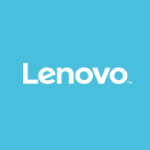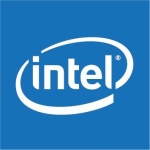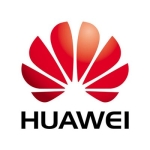What is our primary use case?
In 2013, I joined IBM Pakistan as an IT specialist. Where I used to work as a system manager, the guy who used to work with Power Systems, with OSAIX and IBM storage. Then, I was shifted to IBM Europe in the Czech Republic. There's a CIC center in Brno, where I've worked with IBM as well, but as a third-level support guy. Now I'm based in Qatar, and worked for government organization. I work as a system specialist for the Power Systems and the unit support as well, the operation stuff. I worked for eight years or more before this AIX and Power Systems and storage.
I worked as an operations guy for whole IT operations and as well as the implementation. Because there were so many clients from the banking sector, from the government sector, and telecom industry, they mostly have the billing systems on the Power Systems.
Now, I work as a unified system specialist.
IBM Power Systems is mostly used for specific IBM products because the system AIX is actually propriety of IBM. You cannot install it on any other platform. You can use it in different domains, like SAP HANA, do rack data and rack warehouses. Users in the telecommunication use it. They were using as an IBM Middleware product. An IBM Middleware product was being used solely on the Power Systems.
IBM has started supporting Red Hat, so people use Red Hat and some clients do put it in a cloud environment as well. The core baking system runs on that because most of the core banking like Oracle Financials are being used on this.
The use case depends on what the customer requirement is.
I started working with Power4 back in 2012, and almost Power4, Power5, 6, 7, 8, and now I am working with Power9 as well.
How has it helped my organization?
The banking environment was running the physical servers of like five to six stacks. The utilization of the physical space they were renting out reduced. It enables them to save space. Because when you're leasing, space counts. They were saving quite a healthy amount of money.
The maintenance of the physical hardware is more complex because there were different systems running and you need to go directly into the data center to use it. Now, when it comes to Power Systems, they were using the virtual system and were sitting on centers to verify if there was a hardware failure.
It also saves the cost of having one person at the data center solely looking at data systems. This also saves costs.
When you're using five stack or six stacks, the power utilization of those servers will be high as compared to the two stacks. If you need to add more CPU resources, compute resources to the server, adding those to a physical server is sometimes impossible because there is limited capacity. But when it comes to IBM Power, they have high compute resources. You can add it and you can utilize it. It comes with five or six years of planning. If you have planning and a good planner, then you can use the system for the next four, five years, and that can easily fulfill your requirements.
What is most valuable?
The availability of a solution depends on the requirement of the customer. The most valuable feature is the virtualization. You can have this one system or you can use it for many. They were using almost 120 servers within that specific service.
Within those two servers, there were 150 and then 30 LPARS running, and they were running all their core banking applications over that, from T24 to Oracle Financials, and their Oracle databases. It supports a variation.
You can use the same systems in the telecommunication industry as a middleware. Now, the whole scenario and the whole application are different. IBM Middleware is an application that is supported by IBM. They support these applications on their own platform.
For how long have I used the solution?
It’s been 8 years now with IBM Power Systems.
What do I think about the stability of the solution?
I have had customers who have been using it for three years with no issues. You don't need to do a reboot. I run Linux on Power Systems and it is more stable. You don't need to reboot over again.
What do I think about the scalability of the solution?
It is scalable. It is one of the most important requirements, as an operational system of any IT industry. When they utilize the support that they are running on Oracle databases there is some load on the database, and they want to increase the compute or the resources of the system. This is one of the most critical things, which you usually face almost every day in an operational environment.
IBM provides a solution for that, without shutting down those systems called LPAR, you can increase the compute resources for that. You can increase it online. You don't need to go and switch it off because of the old system. In fact, you don't need to shut it down and then increase. The downtime is minimal compared to the physical hardware.
The scalability process should be simplified.
How are customer service and technical support?
We have used their support. There are some nodes that only a technical support rep is able to see if there is an issue. In the last three years though, I have only needed to contact them twice. I never had any drastic issues.
There are several levels of escalation. A level one, severe issue will be responded to in around four hours. If it is not severe then it can take 12 to 18 hours to get a response.
I would rate their support a ten out of ten. I always find them very helpful, going down to the lowest level to fix the issues.
Which solution did I use previously and why did I switch?
No I didn’t use any other systems and migrate to IBM Power, migrations are mostly from Old Power system to new release.
How was the initial setup?
The deployment depends on customer requirements. There are various factors that can determine if it will be a simple deployment or difficult deployment. IBM Power Systems gives us a certified engineer, that usually comes through your domain and implements the systems. There are a few best practices that you need to follow. If you are an IBM customer or IBM person or an IBM engineer, then you follow those specific guidelines.
Sometimes the customer's requirements are simple so the deployment is simple but sometimes they have a lot of requirements.
It takes around seven days to deploy it.
What about the implementation team?
Power systems usually implemented by coustomer in house team and there are few people i can still remember are quite skilled.
What was our ROI?
I usually work as support and implementation personal, ROI usually calculated by customers internally.
What's my experience with pricing, setup cost, and licensing?
If the organization is small, with 20 to 30 people, they don't usually go for IBM because it's more expensive for a smaller organization.
Smaller organizations of 10-50 people don't have millions of dollars in their budget. If you compare a banking environment, they have millions of budget behind them so they can afford IBM.
Which other solutions did I evaluate?
It is mostly try to compare it with VMWARE virtualization as it supports Linux, but when it comes to stability, IBM Power systems are unmatchable.
What other advice do I have?
When you implement the IBM Global Systems, you must take care of the small things. If you do it perfectly at the start, it will give you more stability at the end of the day. If you don't take care of the small technicalities then in the middle somewhere, there will be high load on the system and you will face issues.
IBM has the best solution in the market and is always comparable to any service provider in the market. I always rate them 10 out of 10 because it's the best product.
Which deployment model are you using for this solution?
On-premises
If public cloud, private cloud, or hybrid cloud, which cloud provider do you use?
IBM
Disclosure: My company does not have a business relationship with this vendor other than being a customer.













In the next release, I would like IBM Power Systems to include a visual operational management console where I can manage all my IBM Power machines end-to-end. - IBM have provided Navigator for i worth checking out.